Do Press Releases Help With Your SEO or Not? (Updated)

SEO is full of strategies, some that are based on new and emerging technologies and others that have been around for literally decades.
One of the older forms of digital marketing is the press release. It's also a technique that has bounced between high-value and essentially spam, with both public opinion and Google's opinion swinging over time.
The question most people have is whether or not press releases can still be worthwhile, or if they're either not worth the effort, or even actively harmful to your marketing efforts. I decided to do some digging into it for 2025 to see what the situation is.
 30 Second Summary
30 Second Summary
You can still use press releases for marketing in 2025, but you need to do it right. Your press release must share real news about your business - like a new product launch, award or major change. You'll get the best results when you send it directly to relevant journalists or use high-quality submission services rather than cheap syndication sites. Don't stuff your release with keywords or make it promotional. Keep it factual and newsworthy. You should track visitor data and backlinks to measure success, but remember that press releases work better for bigger companies sharing actual news than for pure SEO gains.
How Does Press Release Marketing Work in 2025?
First, let's talk about press release marketing at a conceptual level. How is it supposed to work? Then, once we have that baseline, we can talk about the risks and pitfalls associated with the technique.
Press releases are simple. At it's core, it's a document, usually about a page long that includes information about something newsworthy going on with your brand. This might be a notice of acquisition, a new product announcement, a rebranding, a high-profile new hire, a new branch opening, winning an award, or something else entirely.
Where people often go wrong is treating press releases as just another venue for content. Often, you see people write a "press release" that is actually more like a short blog post, a landing page, or a product page.
Press releases are meant to be purely factual and informational. They're meant to be given to journalists – the "press," you know – who can then use the information to write a more informative news article on the subject.
For example, here's a press release from Apple announcing something newsworthy: the dates of their Worldwide Developers Conference. It's posted on Apple's website, but you can bet it was also sent to a variety of journalist contacts.
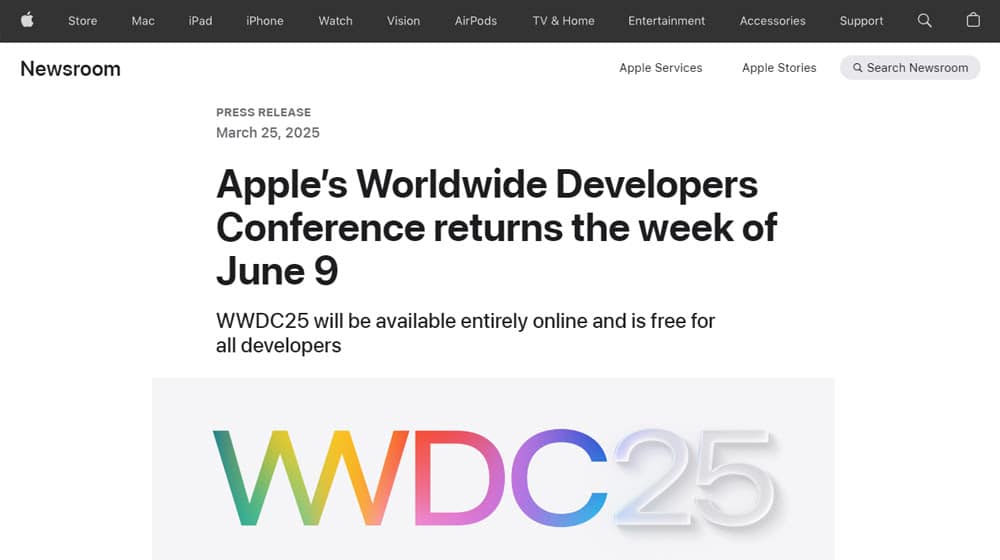
That press release has resulted in coverage on many sites, including:
News agencies, blogs, and social media influencers benefit from this by being able to cover a high-profile news item. Some, such as in the case of Reuters, are able to include a variety of internal links to other past coverage of the conference and of Apple in general. Others, like the LinkedIn posts, just use it to hope they get a slice of the traffic pie.
Apple, meanwhile, benefits in three main ways.
- First, they get wider awareness of their event; people who want to know about the conference now have access to that information from a wide variety of sources.
- Second, many of those pieces of coverage include backlinks to the original release on Apple's site, which is a technical SEO benefit. Obviously, Apple doesn't really need it, but smaller businesses go for this as the main goal.
- Third, it opens them up to contacts from other journalists for more exclusive interviews and other contacts, should they want them.
Ideally, this is how press release marketing works. In a bit, though, I'll get to the ways that it can go wrong.
Can You Get SEO Value from Press Releases in 2025?
We have to address the elephant in the room first - is the value of press releases real?
Awareness, of course, is good, but it's also intangible and difficult to track. Backlinks are generally the main metric of success for a press release campaign. At the same time, though, Google doesn't like "user-generated" backlinks, and a press release is right on the edge of what can be considered user-generated.
Many years ago - back in 2013 - Google recommended that press release links be nofollowed because otherwise, a press release submission service would be an easy way to pay for hundreds of backlinks. At the same time, they also penalized some of the spammier press release hosts. Despite that, there was ample proof even then that press release links still worked.
More recently, the search rater guidelines document - part of Google's human-based algorithm validation process - lists press release service sites as not "reputational abuse" sites. While that's not definitive proof, it does indicate that Google at least considers them somewhat legitimate, as long as they aren't spammy in other ways. But in 2018, they confirmed that they ignore "most links within press releases".
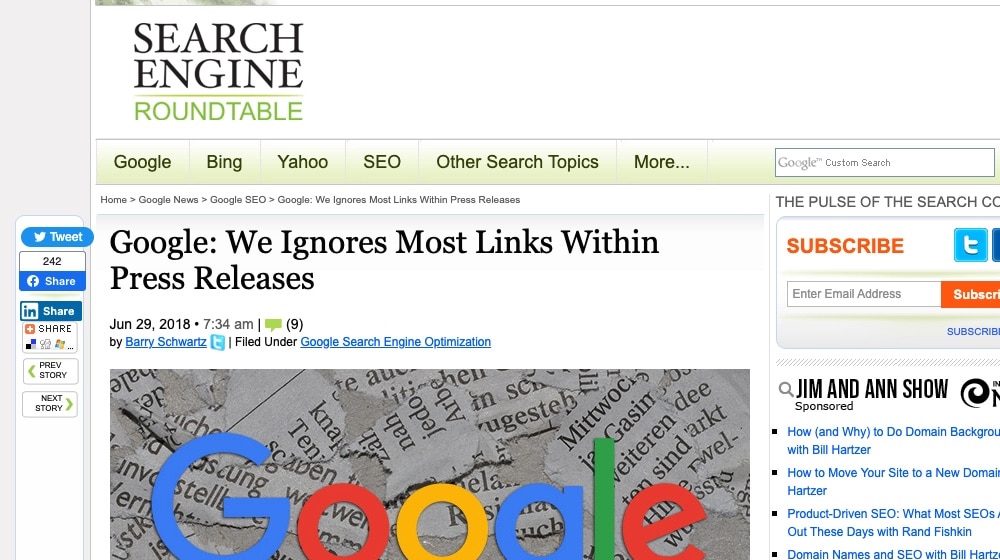
At the same time, Google has an immense focus on EEAT, and press release aggregator sites generally lack the kind of EEAT you want for your site. This indicates that, while the links might not be actively penalized, they might not be worth much. Even if the press release site has its own good EEAT, it might not reflect on the value you get from the press release publication.
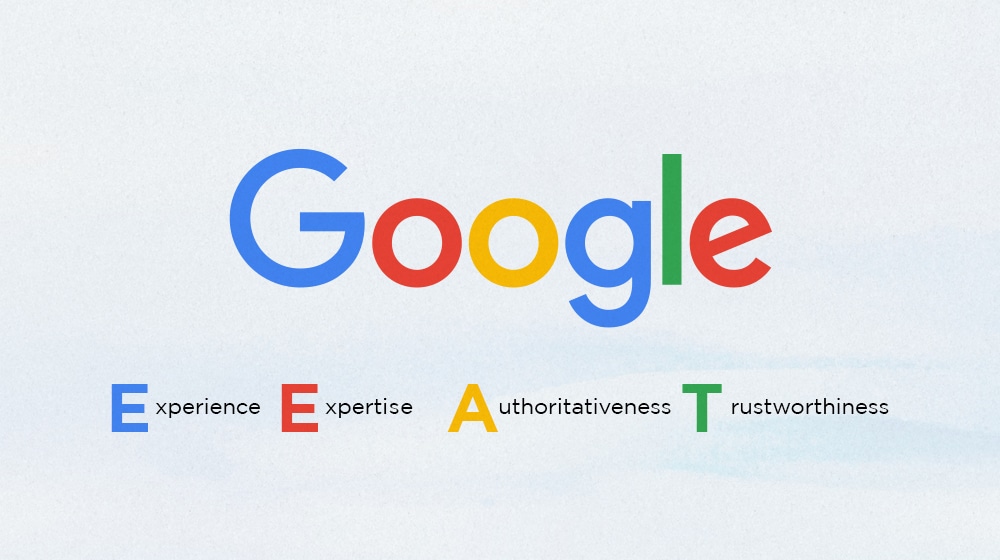
What's the bottom line with press release value?
Unfortunately, it's the same old chestnut we come back to in SEO time and time again: it depends.
If you're submitting press releases to well-known journalists and high-quality sites, that's wonderful. The coverage you get is likely to be very valuable, both in terms of reputation and awareness and with any potential backlinks that can carry good value. It can also trickle down into secondary coverage that doesn't constitute press release marketing directly.
On the other hand, if you're submitting your press releases to syndication services that post them verbatim across thousands of low-quality sites, it's likely to look a lot more like spam. Chances are, 99% of those sites are either deindexed or devalued, and the remaining ones will give you very little value.
Are Press Releases Potentially Dangerous in 2025?
Truth be told, there's really no such thing as a marketing strategy that is fully without risk. Pretty much anything can be done wrong or handled incorrectly and result in wasted time, wasted money, or potential penalties.
Press releases are very much on the edge of marketing strategies. So much so that I personally don't like to use them if I can avoid it. I don't think they're spam or that they're unusable, just that the risks are high, the value is low, and the time and money spent on it can be much better spent elsewhere.
Alright, to step back, what constitutes "doing press releases wrong"?
- Press releases full of keywords and obvious SEO stuffing.
- Press releases that are written in a biased and promotional way.
- Mass submission to low-value press release aggregators.
- Press releases with nothing newsworthy to announce.
- Requests for dofollow links, especially with paid press release services.
- Overuse of press releases and underuse of other organic link-building.
- Too much sculpting, like focusing press releases only on sites that offer followed links.
- Repeated submission of different press releases for the same topic or purpose.
- Clear AI-generated content for press releases, often compounding other issues.
In short: anything that uses press releases for marketing value instead of news coverage. All of these ignore the main reason press releases exist and are used: to notify the press of something newsworthy. Any time you stray outside of that purpose, you run the risk of devaluation or penalty.
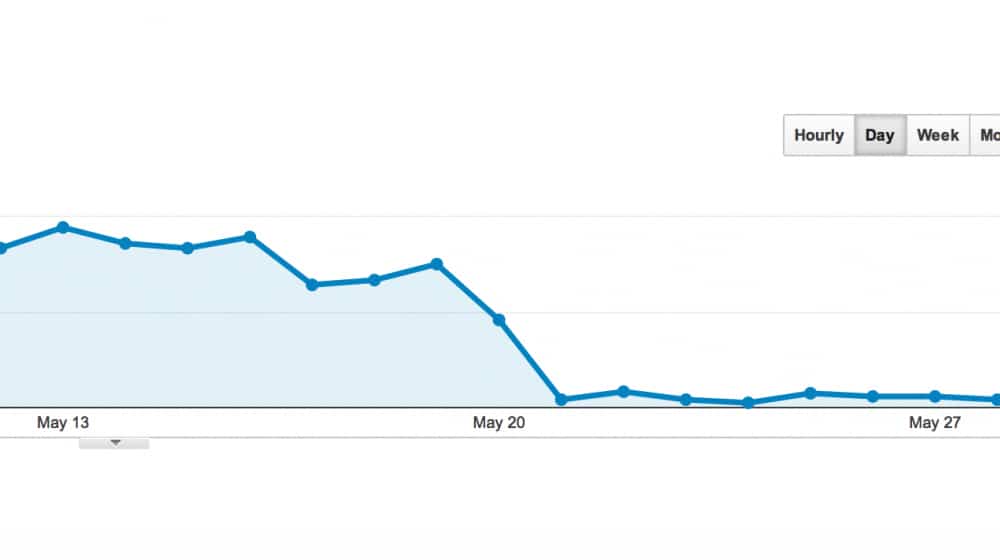
Are you likely to get a search penalty from press releases? No, but it's not impossible.
Search penalties – known as manual actions – generally only show up if you're flagrantly violating Google rules or abusing some linking or keyword technique. Press release submission alone doesn't usually run afoul of these rules.
But, if the service you use to submit your press releases does so across a bunch of private blog networks rather than legitimate media agencies, that looks pretty sketchy.
More likely, you're just going to get very little real coverage and a lot of "coverage" on sites that no one visits except the people who are there to submit their own press releases. You pay for submission, possibly for the press release creation, and for other assets, and get virtually nothing out of it.
How to do Press Release Marketing the Right Way
Can you do press release marketing in 2025 in a way that gets you legitimate value? Sure. Is it hard? Of course. Is it worth the time, effort, and money? That's up to you.
Step 1: Write a good press release.
Writing a good press release is surprisingly difficult. They're a form of content unlike what most people are used to creating. As I've already mentioned, they need to be factual, newsworthy, and timely.
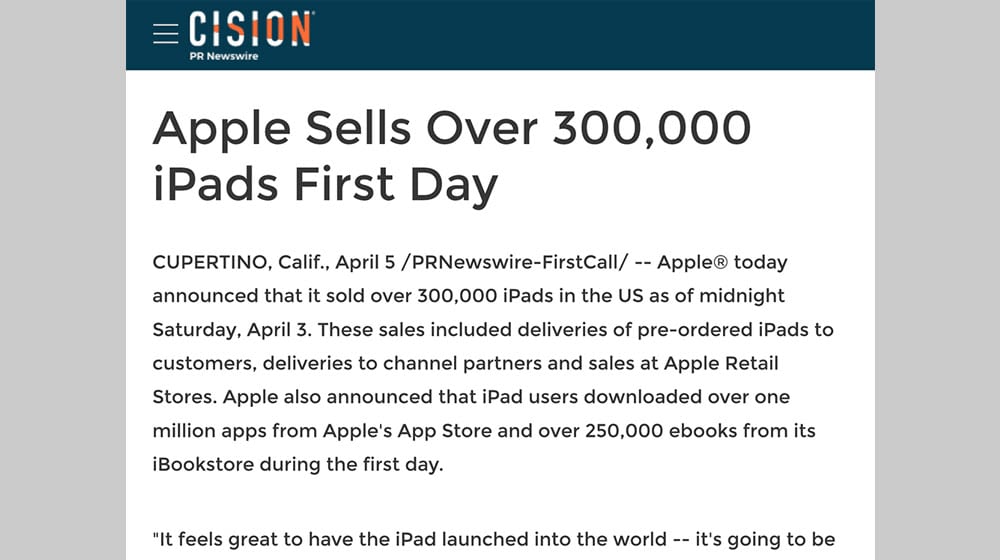
Image source: https://api.backlinko.com/app/uploads/2019/07/apple-press-release-example.png
Most press releases require:
- A title and subtitle summarizing the purpose of the press release.
- A location of the news, either of the location of an event or your company location.
- Your body copy, which is up-front with the purpose of the release. If a journalist reading it doesn't get what they need in the first two sentences, you've failed.
- A short list of important information.
- Contact information and access to a media kit or other resources to learn more.
- A boilerplate bio for who you are and why this is important.
I have a whole guide on writing a good press release here if you want. I may not like to use them, but that doesn't mean I don't know how to make them.
I also very much do not recommend using AI to write a press release for you. You'll get something that looks extremely formulaic and might not even be fully accurate. Press releases are short and simple enough that you should just do it yourself.
Step 2: Find a good way to submit your press release.
There are basically two ways you can submit a press release.
The first is to build a list of relevant journalists and media outlets and send it to them directly. Often, these outlets will have tip lines or contact forms you can use, and they might even have specific "for press releases" email addresses to use. This is the best option for targeted outreach, but since these tip lines are often flooded, you might not get a response or coverage.
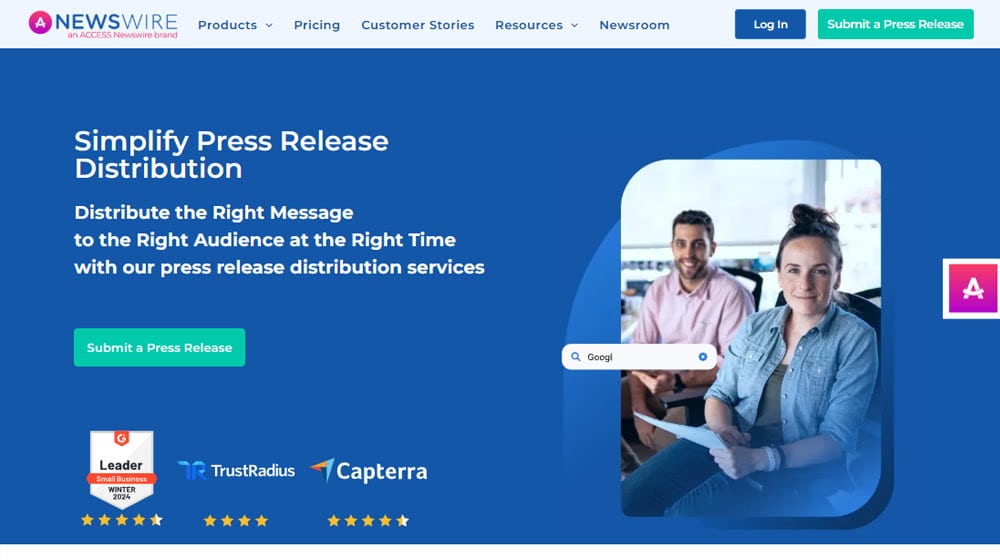
The second is to use a press release submission service. There are a lot of these, and I have a whole list of the good ones here. This is where you can get in trouble; the good services have top-tier media outlets in their contact lists but are expensive. The cheaper ones syndicate your press release on low-tier sites and can get you in hot water. Use the good ones.
You can also do something like hire a PR firm or PR freelancer, but that's kind of just a spin on the second option with more hand-holding. A good agent can do a lot of legwork for you, though, so it might be a great option.
Step 3: Monitor and track your results.
Press releases are sort of a shotgun approach to SEO, and because of that, they don't have very significant returns. You're generally going for quantity over quality here, so the more links you get and the more coverage you receive, the better.
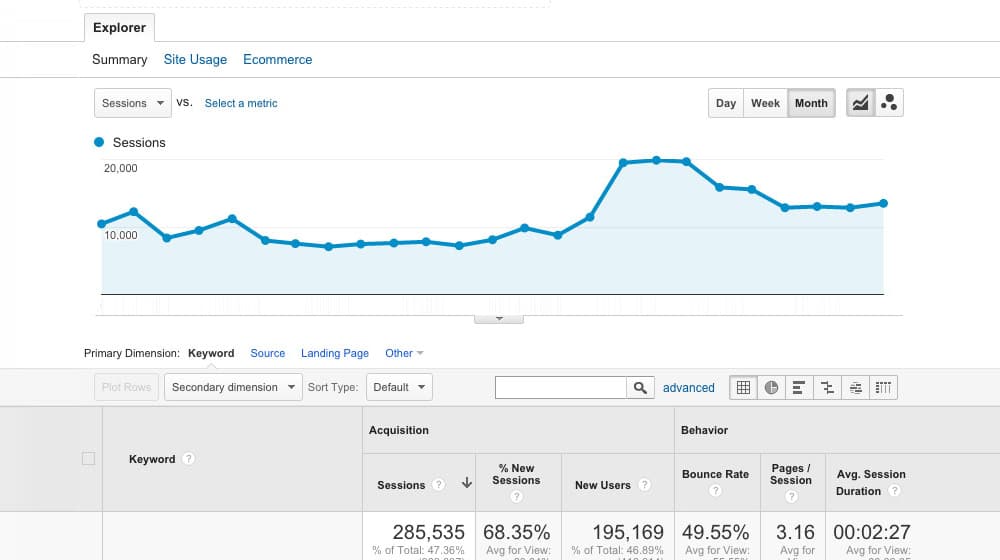
You'll want to monitor relevant data, like your site visitors, your referrers (using UTM tracking if possible), your backlinks, and things like RSVPs for events. This can help you see whether or not your press releases have done anything for you and calculate if the expense was worth it.
Great Alternatives to Press Release Marketing
Since press release marketing is outdated for all but the biggest companies, but the press is such a great resource, what can you do?
I recommend PR outreach platforms. The archetype of these was HARO, which is dead now, but there are a ton of alternatives you can use that work great. It's slower because you're reaching individual journalists rather than whole lists of sites, but your reach is more personal and relevant.
You can also opt for other kinds of link building – or link earning – services. I've put a lot of effort into optimizing my own link-earning service, for example.
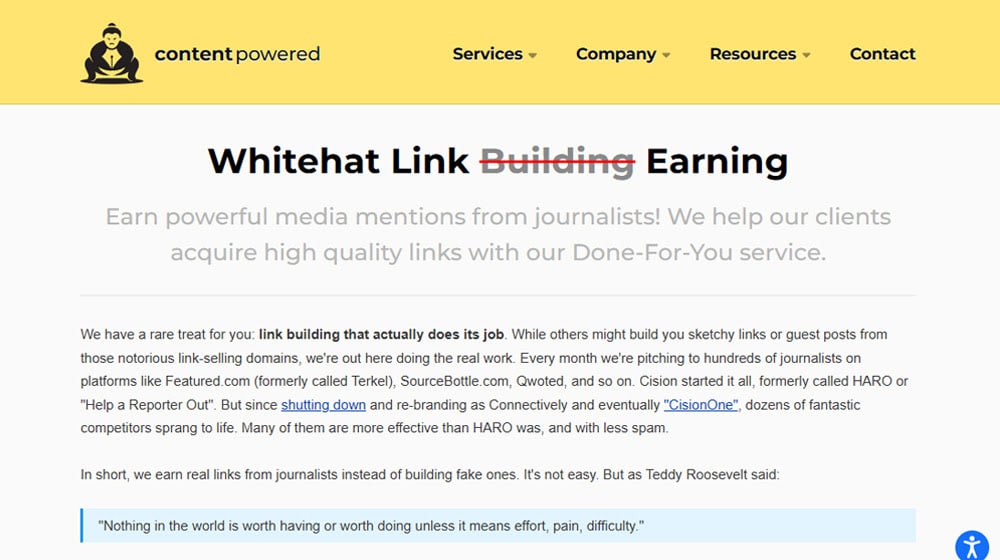
Personally, I don't think press releases are valuable enough for SEO to be used for SEO purposes.
They're a tool for mid-size and larger brands to, well, do what they were traditionally meant to do: notify the press of news. Outside of that purpose, they aren't as worthwhile.



 30 Second Summary
30 Second Summary



Comments